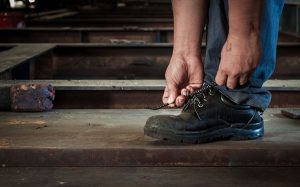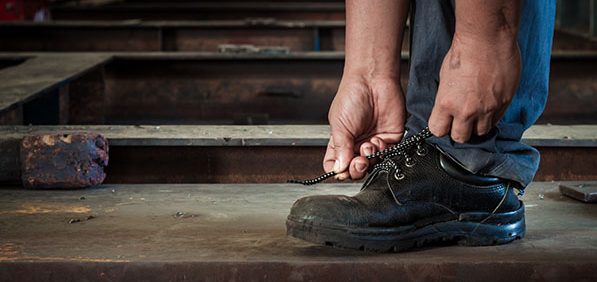
When must employers reimburse employees’ expenses? It depends, of course, on the circumstances. As previously reported, some employees submit unusual and even hilarious expense reports for items like kids clothing, Super Bowl tickets, cat litter and even a cow. Sometimes, it’s obvious when employers don’t have to reimburse an employee (sorry, you probably need to buy your own pogo stick), but what about practical items actually used while on the job? In a recent decision, the Third District Court of Appeal addressed whether employers must reimburse restaurant staff for slip-resistant shoes (Townley v. BJ’s Restaurants, Inc. No. C086672, 2019 WL 2913303, at 1 (Cal. Ct. App. June 4, 2019)).
Under the Private Attorneys General Act, the plaintiff brought a claim against a nationwide restaurant chain for failing to reimburse employees for work expenses under Labor Code section 2802(a), which requires employers to reimburse employees “for all necessary expenditures or losses incurred by the employee[s] in direct consequence of the discharge of [their] duties.” Hourly restaurant employees are required to wear black, slip-resistant, closed-toe shoes to work for safety reasons and the company did not provide the shoes or reimburse employees for them. The trial court granted summary judgment for the company and the plaintiff appealed to the Third District.
A few years earlier, the Ninth Circuit had considered the exact same issue in an unpublished opinion (Lemus v. Denny’s Inc. (9th Cir. 2015) 617 Fed.Appx 701). In that case, the Ninth Circuit held that the company did not have to reimburse employees for slip-resistant shoes because the shoes are not part of a “uniform,” as defined by the applicable Industrial Welfare Commission Wage Order, or protective apparel regulated by Cal/OSHA or OSHA, both of which employers must provide.
The Ninth Circuit relied on a California Division of Labor Standards Enforcement (DLSE) opinion letter, which states that employers could specify “basic wardrobe items which are usual and generally usable in the occupation, such as white shirts, dark pants and black shoes and belts, all of unspecified design,” without being required to furnish these items.
The Third District Court of Appeal found the Ninth Circuit and the DLSE opinion persuasive, concluding that the company is not required to reimburse its employees for the cost of the slip-resistant shoes under section 2802 because it is not a “necessary expenditure” under the section. The Third District noted that the plaintiff didn’t argue that the shoes were part of a “uniform” or were not “usual and generally usable in the occupation,” and didn’t present any authority indicating employers had to reimburse employees for non-uniform wardrobe items under section 2802. Because of this, the court affirmed the judgment of the trial court.
This favorable decision for employers affirms the longstanding DLSE enforcement policy allowing employers to specify basic wardrobe items which are “usual and generally usable in the occupation,” without requiring reimbursement for such items. Additionally, the court declined to extend Labor Code section 2802 to cover non-uniform wardrobe items, such as slip-resistant shoes.
Employers should be aware of employee wardrobe requirements and remember to consider whether any required “basic wardrobe items” are usual and generally usable to that occupation, not whether the item is appropriate for general everyday use. For example, requiring tropical shirts for restaurant staff would likely be considered a uniform, which the employer must provide, because it is not standard apparel for servers in the restaurant industry.
Employers should consult with legal counsel to determine if their wardrobe requirements are considered uniforms.
James W. Ward, Employer Law Subject Matter Expert/Legal Writer and Editor
CalChamber members can read more about Tools, Uniforms and Equipment Explained in the HR Library. Not a member? See what CalChamber can do for you.




